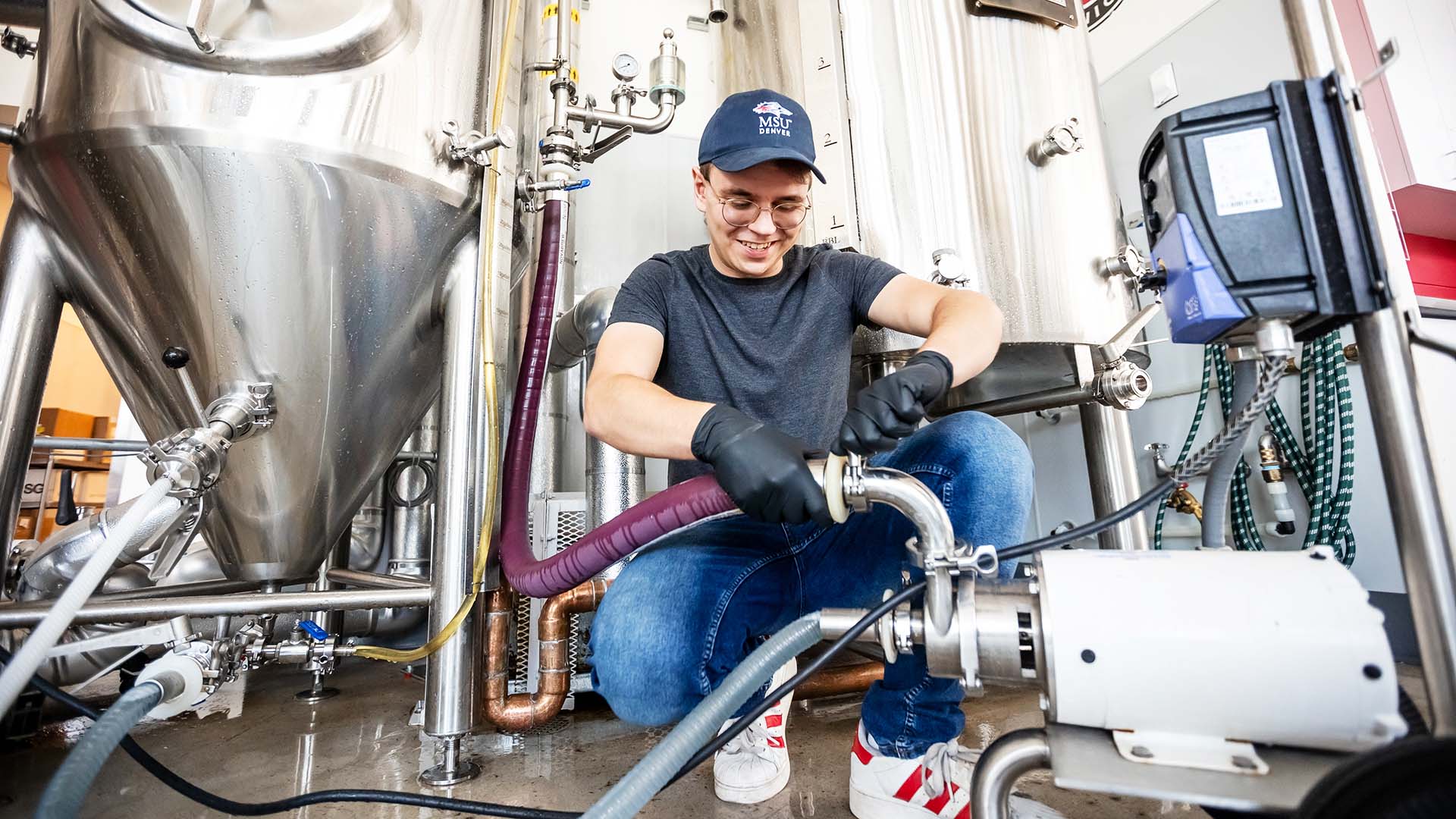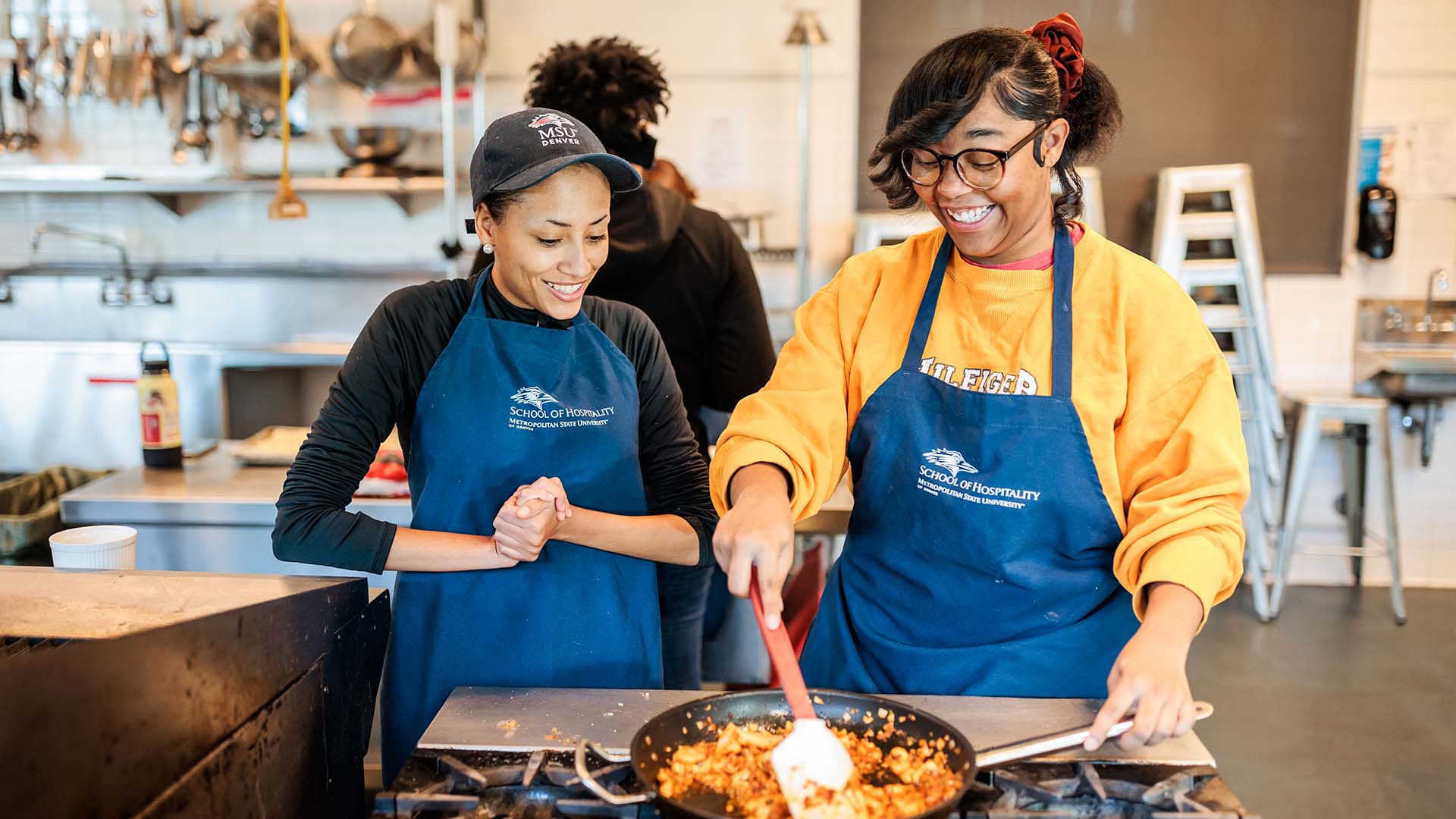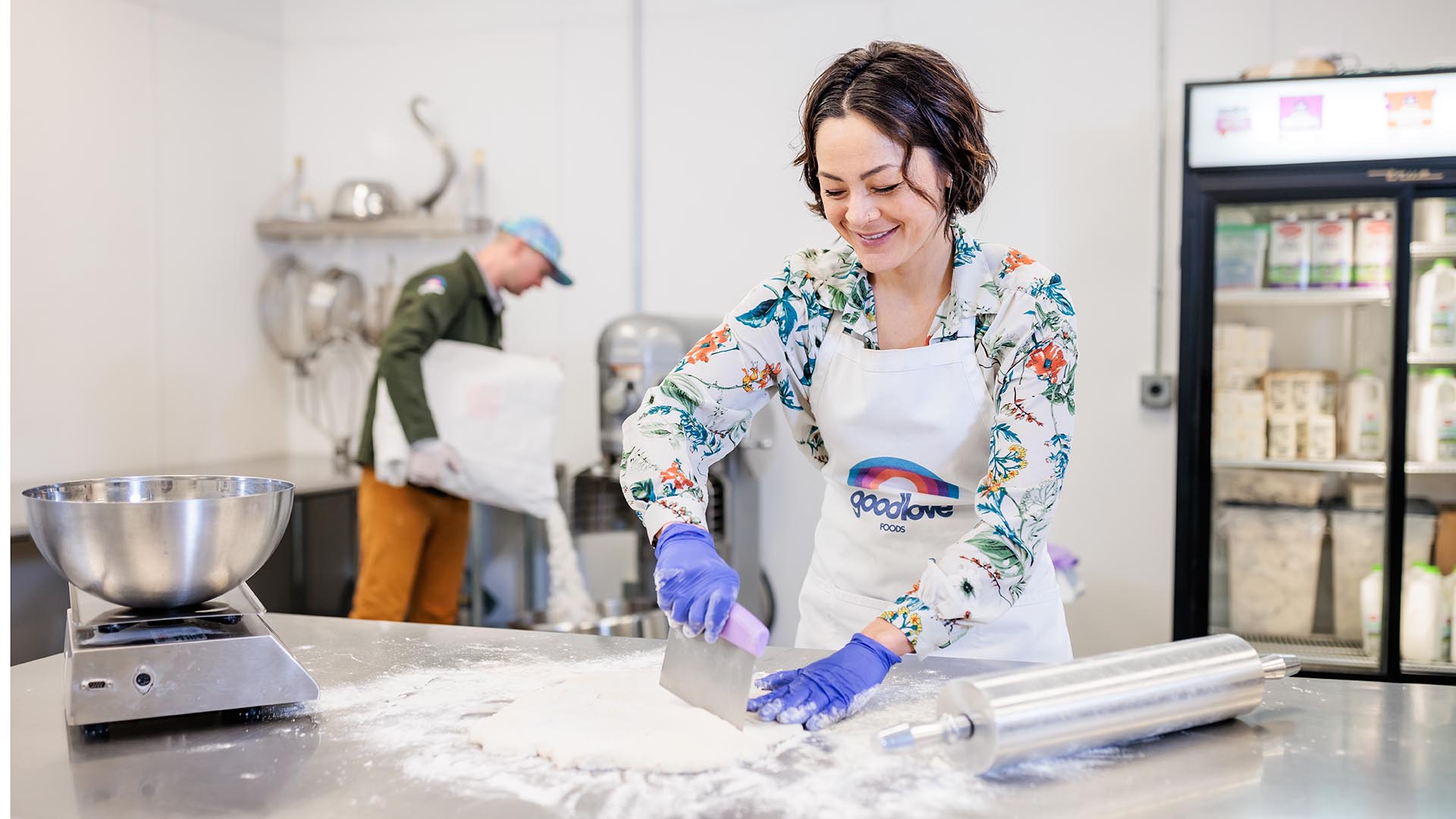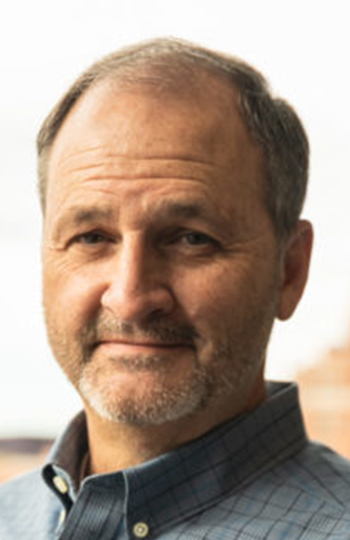Your vaccine-passport questions answered
MSU Denver School of Hospitality Dean Christian Hardigree weighs in on the prospects for passport programs and “revenge tourism” amid a predicted travel boom.
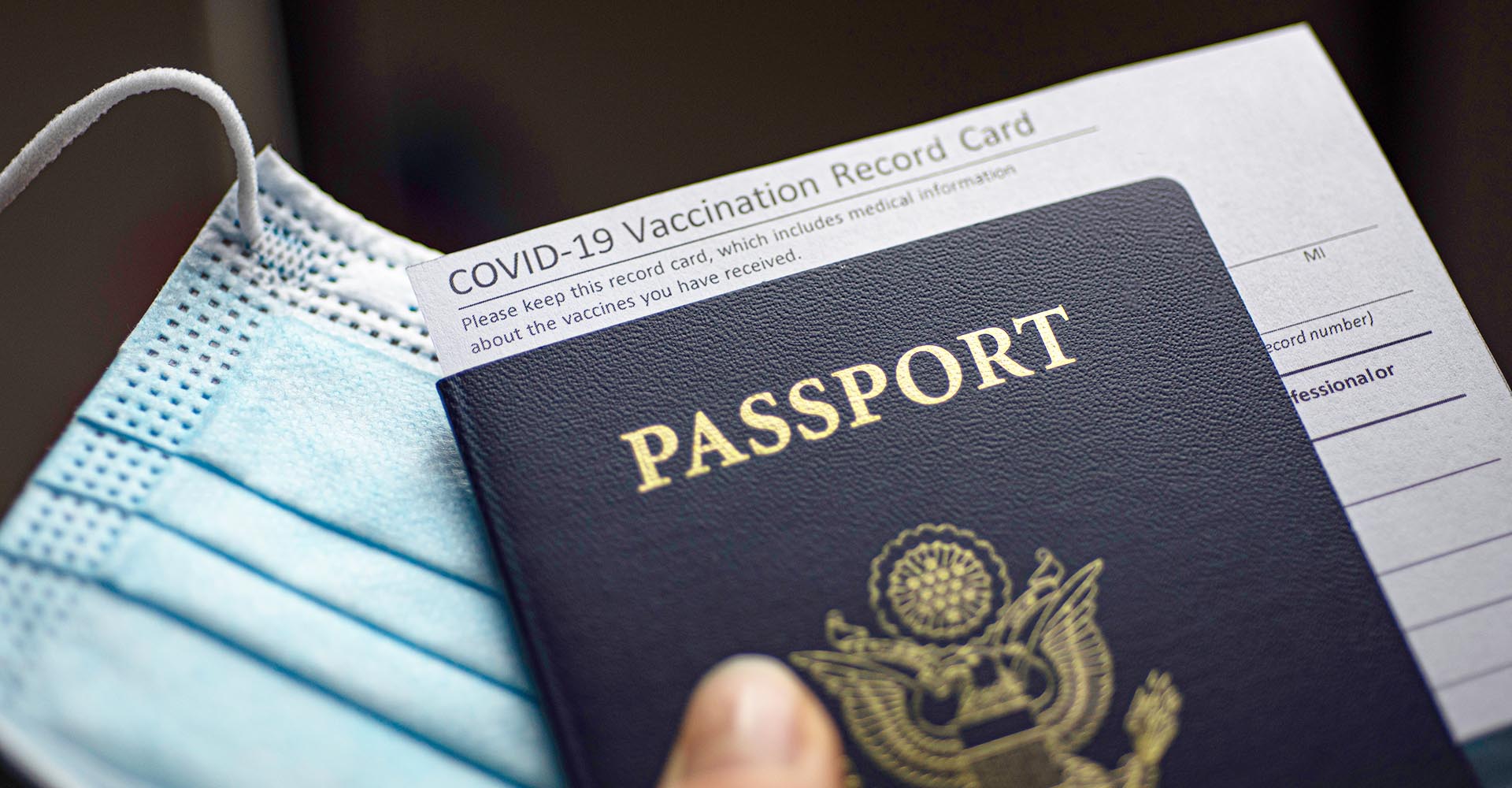
Will vaccinations be required to take vacations this summer?
Last month, the Centers for Disease Control and Prevention updated its travel guidance to say fully vaccinated people can travel safely while maintaining other Covid-19 prevention measures such as wearing masks and social distancing. In Colorado, Gov. Jared Polis on Sunday announced loosening of statewide mask restrictions: Indoor gatherings of 10 or more can go maskless if 80% can prove vaccination, though enforcement of the amended order remains unclear.
With excitement to get back to the beach, baseball games and beer gardens rising with the temperatures, vaccination passports in one form or another is increasingly being viewed as vital to restarting the hospitality industry this summer. But what such programs might looks like in practice remains nebulous. The Biden administration last month ruled out a federal program, instead saying it will defer to private companies if they want to implement vaccine passport systems. Efforts to develop digital Covid vaccine records include the Vaccination Credential Initiative backed by Microsoft and the Mayo Clinic, which hopes to make the technology it develops available later this month.
But even private-sector efforts to develop a vaccine passport have grown contentious at the state level. Florida Gov. Ron DeSantis (R) and Texas Gov. Greg Abbott (R) in April each signed executive orders prohibiting vaccine passports in their respective states. On the other hand, New York is working with IBM to launch Excelsior Pass, which uses blockchain technology to verify vaccine credentials for access to certain venues and events; California allows venues that verify vaccination status to hold larger events; and Hawaii is developing a passport system that would allow vaccinated travelers to bypass Covid-19 quarantine requirements.
To learn more about the implications of vaccine passports in the travel and hospitality industries, RED caught up with Christian Hardigree, J.D., dean of Metropolitan State University of Denver’s School of Hospitality. Here’s how she sees the reopening of travel unfolding.
How is the hospitality industry responding to widespread vaccine-rollout efforts?
Hardigree: The hospitality industry, overall, is eager for widespread vaccination in order to return to “normal,” with many venues – e.g., Ball Arena – setting up sites to help with the distribution process. It’s a piecemeal result so far in employers requiring it, which isn’t helped when other entities aren’t – nearly 40% of Marines have declined vaccinations. Legally, ethically and culturally, many leaders are unsure where this leaves them.
What are the implications and likelihood of a potential vaccine-passport program across different sectors?
Hardigree: The airline and cruise industries will likely be more able to require a vaccine passport, as many foreign countries require vaccination for entry – each country sets their individual requirements. For domestic travel, this will likely be on a state-by-state basis, resulting in a patchwork of inconsistent regulations and conflicting business criteria, likely confusing and frustrating travelers.
It’s very unlikely that hotels, restaurants, sports venues and other similar locations would require a vaccine passport, as there are a number of issues that would arise. This includes:
- Health data – HIPAA regulations protect individual health information as private.
- Consistency of proof – the Vaccine Credential Initiative is trying to address this, but the process could be cumbersome and with much of the population “the horse is out of the barn.”
- Reasonable accommodation – there’s uncertainty and claims of possible discrimination around those declining vaccination for health or religious beliefs and possible civil-rights violations if entry is refused.
- General issues around privacy/informed consent – if we use a phone-based app, that has implications for potential data mining, hacking and tracking; additionally, requiring certain platforms may further disadvantage communities without equitable access to technology.
To that last point, you’d mentioned that a passport system could be exclusionary to certain communities. Could you expand on this?
Hardigree: Historically, only 45.3% of American adults get the flu vaccine, and those in marginalized populations are less likely to do so. That trend is likely to continue with a new, emergency-use-approved vaccine, particularly in light of historical issues of scientific racism and testing on marginalized groups, like the infamous Tuskegee study.
There is an eroded sense of trust that will continue to otherwise disenfranchise populations who are uninterested in getting the vaccine, e.g., undocumented individuals may be hesitant to register for fear of being tracked.
Could you tell me about the concept of “vaccine marketing,” promoting staff vaccinations as a safety or hygiene measure?
Hardigree: I do think some places will try to advertise that all employees have been vaccinated as a strategy, but with Pfizer recently saying that it’s likely we’ll need a third booster and possible annual injections, I think that will become hard to ensure accuracy in advertising. Plus, the Pfizer and Moderna vaccines are 95% effective – but there will still be breakthrough infections, which could complicate messaging.
As supplies were unequal at the beginning of the rollout, we saw folks traveling across state lines to get vaccinated. How is this trend impacted with widespread availability?
Hardigree: Vaccine tourism is continuing and is (in part) based on party lines. Gaps remain based on public promotional campaigns and administration differences causing people to travel to get vaccinated; the contrast can be seen in Virginia between two counties only 70 miles apart. I think future vaccine-tourism trends will hinge on whether additional boosters and annual shots are needed relatedly.
What does this portend for summer and fall travel?
Hardigree: I believe we are about to undergo a strong “revenge tourism” period where people are adamant about travel and will be less likely to want to continue with mask-wearing and social distancing.

